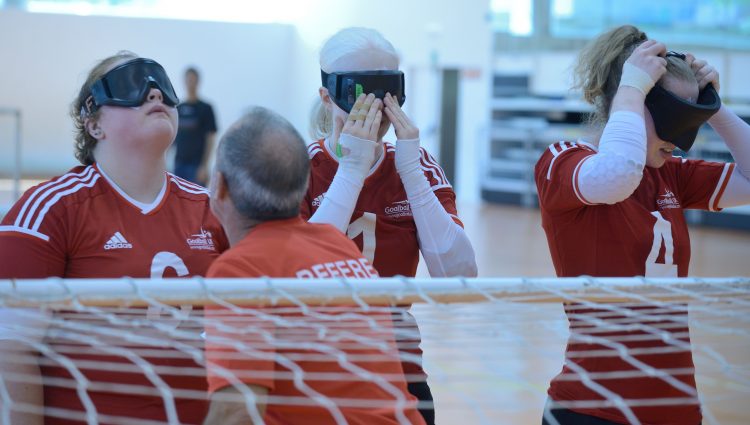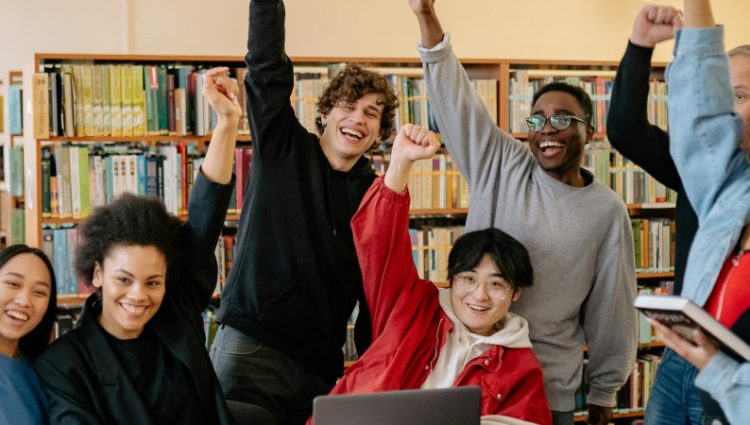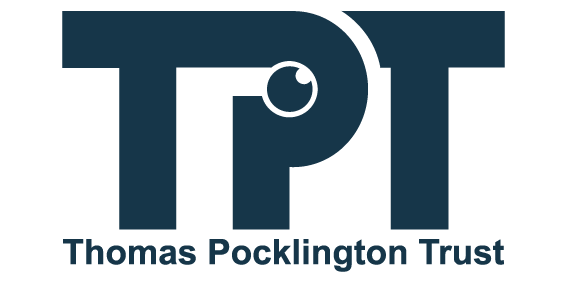Lucy’s story
9-year-old Lucy wanted to be able to play out with her twin sister and her friends, and join in with sports, just like everybody else. But it wasn’t so straightforward. Lucy and her twin sister, Lily, were born prematurely. Within the first couple of weeks, doctors realised the blood vessels in Lucy’s eyes were growing towards her pupils and she might go blind if they didn’t correct it with surgery. Devasted and worried, her parents agreed and at just three weeks old, Lucy had laser eye surgery. They were told the surgery went well but she’d need regular check-ups. A couple of years later at a check-up, Lucy wouldn’t look where doctors wanted her to. They realised it was because she couldn’t see. They prescribed glasses and told her parents that her vision would improve.
A few years later, Lucy was struggling with her schoolwork and falling behind. Her mum was worried and kept pushing for support. Lucy’s eye contact was so bad that the school were beginning to investigate if she had autism, when by chance, Gateshead Low Incidence Needs Team (LINT), were in school working with another pupil and were asked if they could assess her. They discovered she had a dramatic decline in her vision; she has high myopia as a result of Retinopathy of Prematurity (ROP), and she was quickly referred to their service.
The vision specialists and the CFVI
Carrie-Anne Brooke Lovell, lead teacher of Vision and Multi-Sensory Impairment in Gateshead, worked with Lucy and was keen to help her thrive at school and in her interests. Working closely with Lucy’s school and the Gateshead SEND Team, a referral was made for a needs assessment and subsequently an application for an Education and Health Care Plan (EHCP).
 Lucy now has one-to-one support in school where she’s taught the skills needed to access her learning as identified in the Curriculum Framework for Children and Young People with Vision Impairment (CFVI) and to develop her ‘learning to access’ skills. She’s being taught keyboard skills, touch typing and how to use an iPad. She also has CCTV so she can zoom in on the whiteboard and the teacher and can share her work with them on the screen. She’s also being taught how to use a cane, Braille and self-regulation skills. All these skills are developed so that Lucy can take part in school and life with as much independence as possible.
Lucy now has one-to-one support in school where she’s taught the skills needed to access her learning as identified in the Curriculum Framework for Children and Young People with Vision Impairment (CFVI) and to develop her ‘learning to access’ skills. She’s being taught keyboard skills, touch typing and how to use an iPad. She also has CCTV so she can zoom in on the whiteboard and the teacher and can share her work with them on the screen. She’s also being taught how to use a cane, Braille and self-regulation skills. All these skills are developed so that Lucy can take part in school and life with as much independence as possible.
Talking to Lucy and her parents, Carrie-Anne soon discovered Lucy’s passion for sports which she found heart-breaking because the specialist ophthalmologist forbade Lucy from taking part in any kind of sporting activity or even playing outdoors because of the high risk of her retinas detaching. Carrie-Anne was left wondering what they could do for Lucy.
She contacted a specialist optometrist and arranged for Lucy and her parents to visit. He made Lucy bespoke glasses with specially thinned light-sensitive lenses, as Lucy’s prescription was by now so strong her glasses were really heavy and thick, and she’s also very sensitive to light with ROP. He made specialist goggles for sportswear and another pair for swimming. Realising the cost was going to be prohibitive, Carrie-Anne contacted the Powell Family Foundation and they managed to secure funding for all the specialist eye wear Lucy needed.
Lucy couldn’t believe the difference when she walked down Gateshead High Street with her new glasses on. She called out to her mum:
“Wow, I can see that bright sign!”
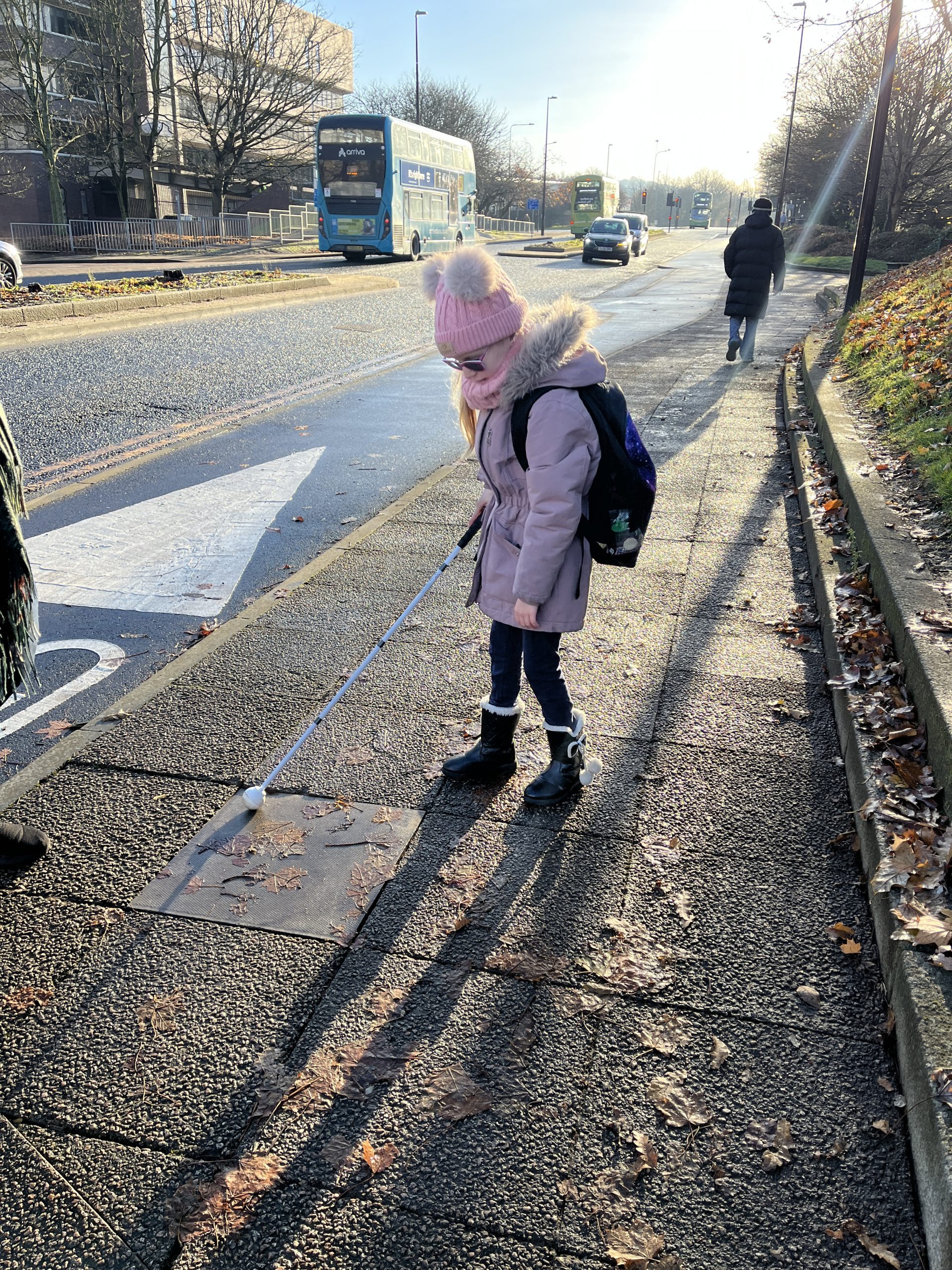
Lucy can now play outside, play sports and go swimming – just like everybody else.
“Now she’s out all the time, loving life!”
Carrie-Anne told us.
A spotlight on gaps in the service provision
At this time, Carrie-Anne was also organising regional meetings for Qualified Teachers of Vision Impairment (QTVIs) and identifying where they had gaps in their provision using the CFVI. She identified Area 10, Social Sports and Leisure, as an area to work on. How could she make a difference for Lucy and others who want to join in with sports in the area? As Carrie-Anne said:
“It’s put a spotlight on our area 10 and made us review what provisions are already in place.”
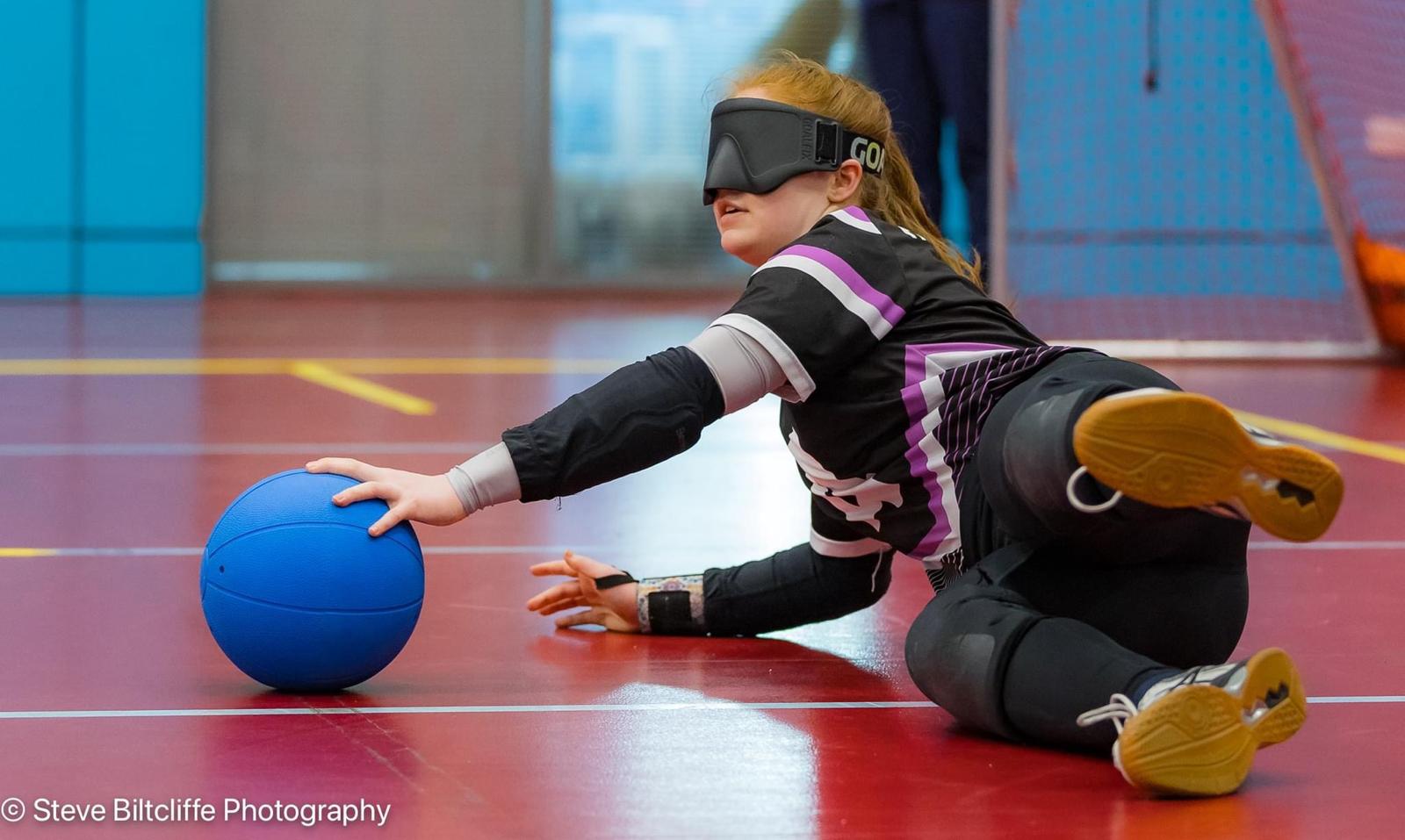 Carrie-Anne researched charities in the northeast to see what was out there. Whilst there was some VI sports provision for adults, there was very little for children. She quickly made connections with charities; Smile Through Sport, RSBC and Northern All Star Goal Ball and set up a real life ‘local offer’ on VI sport for parents and education staff to meet their representatives. The day was a great success and vital contacts were made.
Carrie-Anne researched charities in the northeast to see what was out there. Whilst there was some VI sports provision for adults, there was very little for children. She quickly made connections with charities; Smile Through Sport, RSBC and Northern All Star Goal Ball and set up a real life ‘local offer’ on VI sport for parents and education staff to meet their representatives. The day was a great success and vital contacts were made.
Working in partnership
Rachel Miller from Smile Through Sport told TPT they are now:
“Working in partnership to ensure there is multi-sport provision for children and young people but also that providers and volunteers are upskilled to ensure this provision is long term and sustainable.”
Carrie-Anne also connected with Holly from Northern All Stars Goalball who has VI herself. Holly told us:
“I’m extremely passionate about how we can engage children and young people in sports. Personally, I have always been a very active person but have struggled to engage in mainstream sports due to my VI. I didn’t find VI sports until I was an adult, but once I did, not only did I find sports that I could do but I found a community of people who are also visually impaired, who understand some of the difficulties I faced and generally made me more confident… Some of these people have made a huge impact on my life and have become incredibly close friends.”
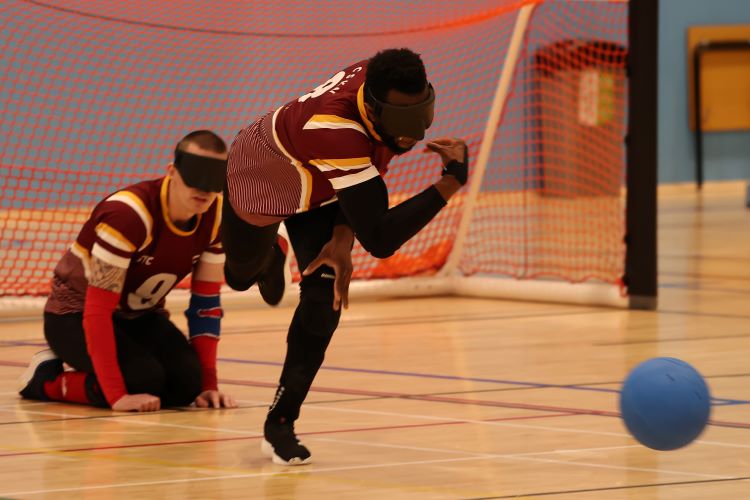
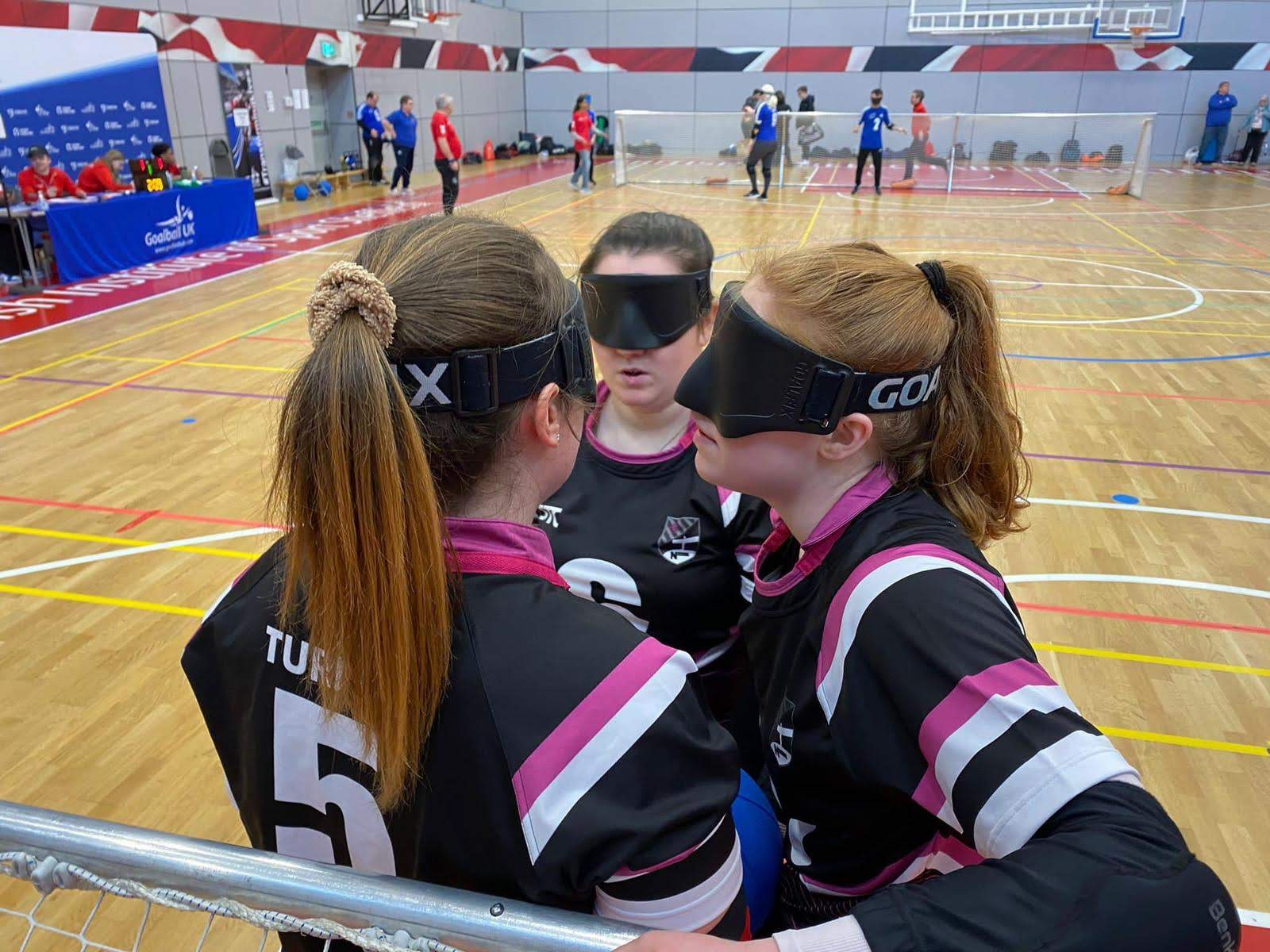
Role models and the benefits of taking part in sport
The importance of finding role models with VI themselves who can really inspire and influence children and young people to take part in sport and develop their confidence and independence is crucial.
“Finding role models out there who our children and young people can really relate to as well… I think that’s been fantastic.”
said Carrie-Anne Brooke Lovell.
Also, as Holly says, taking part in sport is beneficial in so many ways:
“We all are aware of the health and wellbeing benefits that sport can bring to anyone. Without having accessible sports, VI people are at a significant disadvantage which can lead to long term health complications, meaning overall poorer health outcomes for this population.”
Deborah Mason, the (now retired) service manager for SEND in Gateshead worked closely with Carrie-Anne and the team supporting Lucy. She believes it was through collaborative working across Gateshead that Lucy’s diagnosis was picked up on and Carrie-Anne’s determination and ability to make contacts that the outcome was so good for Lucy. Thanks to Carrie-Anne’s perseverance, it’s all come together.
Smile Through Sport have recently been successful in gaining a grant from Gateshead Council in order to run a weekly VI club and holiday events in Gateshead and North East sensory services will be hosting its first VI regional sports event in June 2025. A whole programme of VI sport and connections have come about because of Lucy and her love of sport.
Levelling the playing field with the CFVI
So how can we ensure every child and young person with vision impairment has the same opportunities and level of support?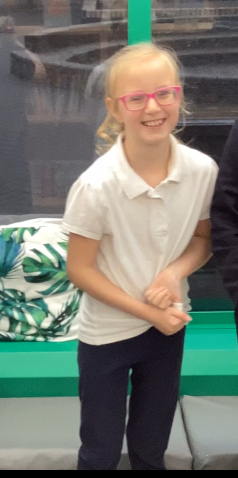 At Thomas Pocklington Trust we’re campaigning for the CFVI to be embedded into education policy, making it our number one ask in our latest policy report:
At Thomas Pocklington Trust we’re campaigning for the CFVI to be embedded into education policy, making it our number one ask in our latest policy report:
Vision for VI Education: Building Blocks for Change – Thomas Pocklington Trust. We know that VI provision and resources vary across the country, and the CFVI has a big role to play to redress this. The framework sets out best practice, offers examples of intervention approaches and enables staff to strategically identify gaps in provision and ideas on what they can do to fill them. Ultimately, the CFVI should level the playing field as it becomes embedded into practice and fulfils its aim of equity in education, enabling the opportunity for every child and young person to thrive. As Lucy says, “Just like everybody else.”
For more information on our CFVI work, please visit our website: Curriculum Framework For Children and Young People With Vision Impairment: Policy and Campaigning – Thomas Pocklington Trust

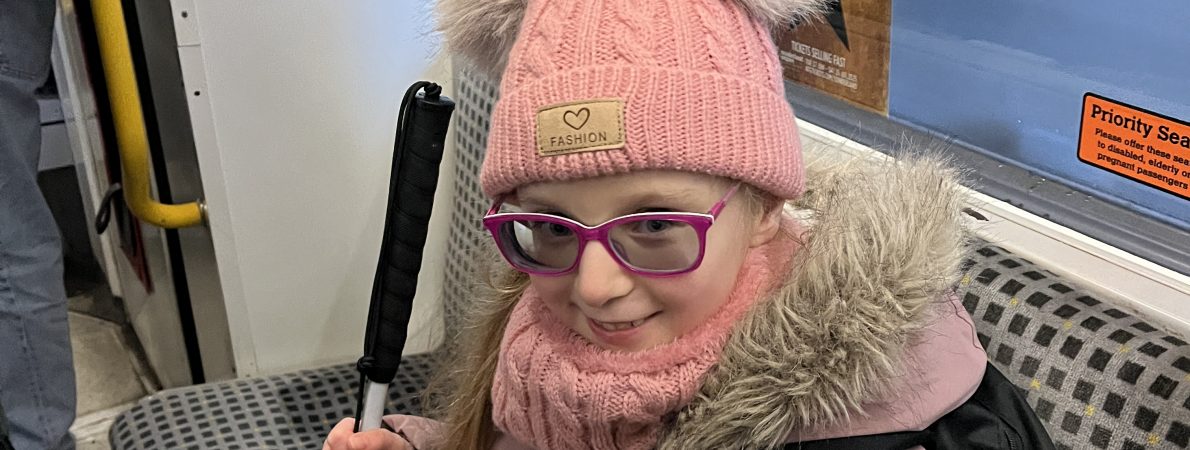
 Lucy now has one-to-one support in school where she’s taught the skills needed to access her learning as identified in the
Lucy now has one-to-one support in school where she’s taught the skills needed to access her learning as identified in the 
 Carrie-Anne researched charities in the northeast to see what was out there. Whilst there was some VI spor
Carrie-Anne researched charities in the northeast to see what was out there. Whilst there was some VI spor

 At Thomas Pocklington Trust we’re campaigning for the CFVI to be embedded into education policy, making it our number
At Thomas Pocklington Trust we’re campaigning for the CFVI to be embedded into education policy, making it our number 